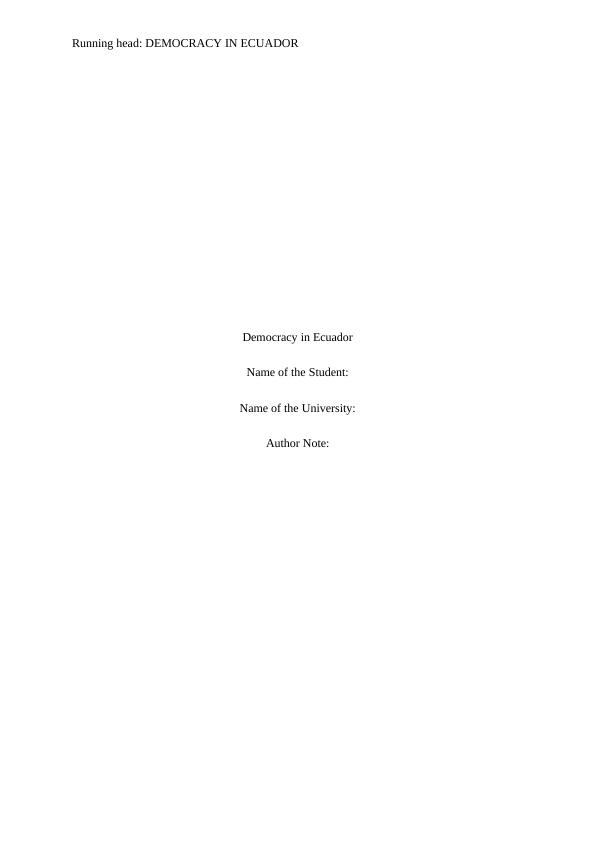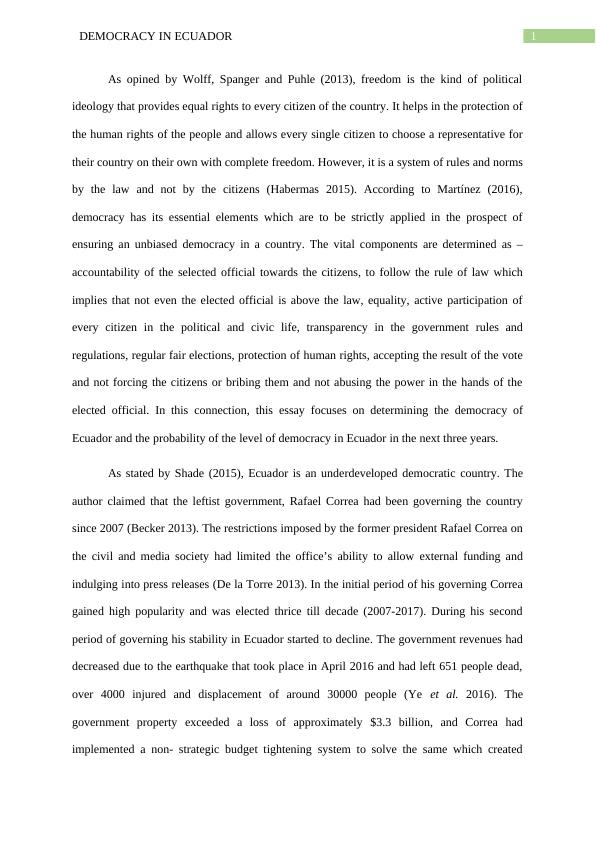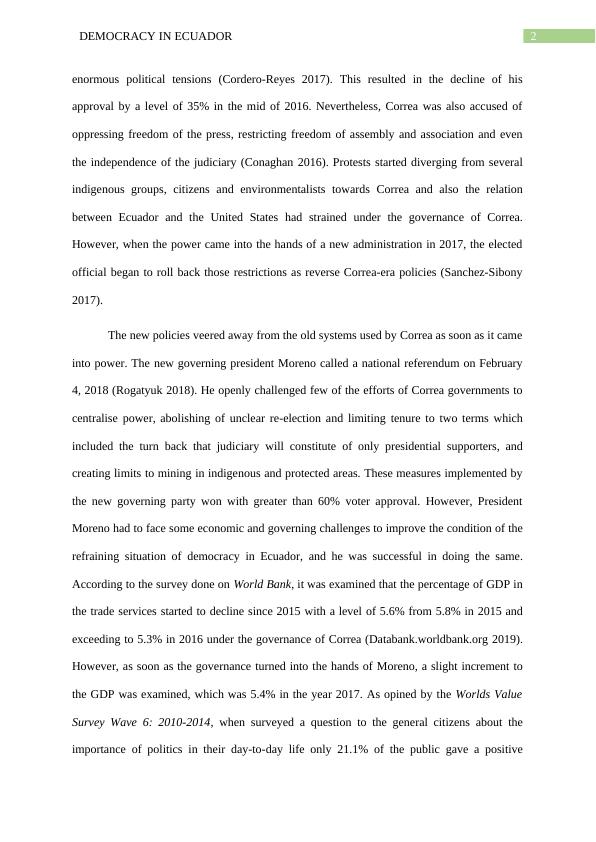Democracy in Ecuador
9 Pages2211 Words484 Views
Added on 2023-04-07
About This Document
This essay focuses on determining the democracy of Ecuador and the probability of the level of democracy in Ecuador in the next three years. It discusses the governance of Rafael Correa, the changes brought by President Moreno, and the improvements in the condition of Ecuador's democracy.
Democracy in Ecuador
Added on 2023-04-07
ShareRelated Documents
End of preview
Want to access all the pages? Upload your documents or become a member.
Why did the quality of democracy decrease worldwide during the last decade?
|10
|3520
|459
Vital Elements of Rule of Law in Representative Community
|5
|644
|21
Authentic Democracy and Compatibility with Representation
|8
|1741
|165
Political Environment
|8
|2139
|89
Basic Concepts of Democracy
|10
|2822
|158
Threat to Democracy Assignment
|10
|2545
|264



